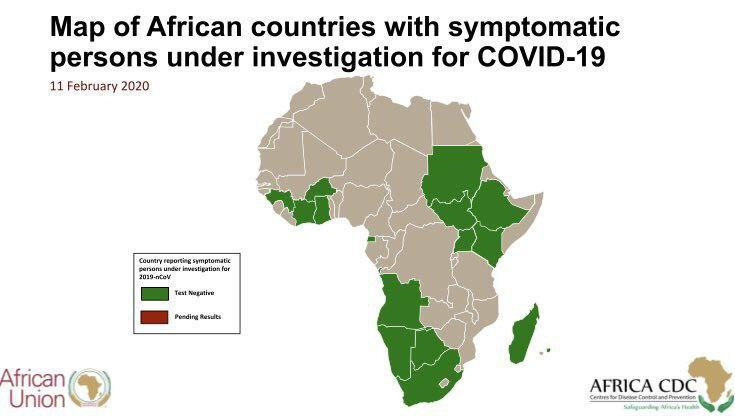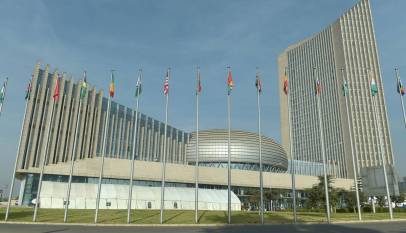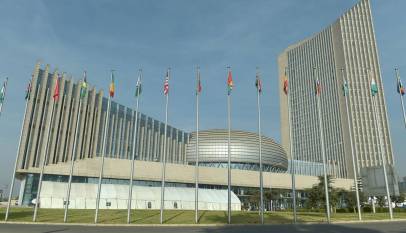Africa CDC: Enhancing Africa`s surveillance systems against coronavirus outbreak
Against the outbreak of the coronavirus disease in China, the Africa Center for Disease Control and Prevention (Africa CDC), activated an emergency operations center, aimed at curtailing the potential spread of the virus, now named Covid-19, on the continent

Coronaviruses belong to a large family of viruses that cause infections such as common cold in human respiratory systems. Previously, different variants of the coronavirus had emerged to infect people with severe consequences; for instance, a deadly coronavirus was responsible for severe acute respiratory syndrome (SARS) and the Middle East respiratory syndrome (MERS) leading to the deaths of thousands of people in 2002 and 2012, respectively.
According to the US Center for Disease Control and Prevention (CDC), the latest coronavirus outbreak emerged in December, 2019, at a seafood market in the Wuhan province of China. The virus is passed from animal to humans, through a close human-to-animal contact. Consequently, the Wuhan market has since been shut down to limit the spread of the virus; yet more cases are being identified. Thus, the World Health Organisation (WHO) has since declared the Wuhan coronavirus outbreak a global public health emergency.
WHO Director-General Dr. Tedros Adhanom Ghebreyesus said the decision to declare the outbreak an emergency wasn’t because of the rapidly growing number of cases in China, but because WHO’s expert panel was worried about the virus spreading to other countries. “Our greatest concern is the potential for the virus to spread to countries with weaker health systems,” Ghebreyesus said, according to a report by Forbes.
It was on this premise, the Africa CDC, AU`s technical institution responsible for addressing public health emergencies and disease outbreaks in Africa, activated an Emergency Operations Center (EOC) to tackle the potential outbreak of coronavirus disease. “Africa CDC is working with laboratories in Member States to identify facilities that are able to receive and test specimens for novel coronavirus infection,” says a press statement signed by the Dr. John Nkengasongo, director of the Africa CDC.
The statement noted that Africa CDC will be providing weekly updates, alongside national public health institutes; working closely with AU Member States to support infection prevention and control in healthcare facilities; as well as working with airline operators to support screening of travelers on the continent, while providing credible and up to date information as the virus outbreak evolves.
“All Member States should enhance their surveillance for severe acute respiratory infections (SARI), carefully review any unusual patterns of SARI or pneumonia cases. Examples of enhanced surveillance include: adding questions about travel and testing for coronaviruses to existing influenza surveillance systems; notifying healthcare facilities to immediately inform local public health officials about persons who meet the case definition for SARI and recently traveled to Wuhan or other affected countries,” urged Africa CDC.
Additionally, Africa CDC noted that Member States that receive direct or connecting flights from China should screen incoming passengers for severe respiratory illness and a history of recent travel to Wuhan or mainland China; “Member States should notify the WHO and Africa CDC immediately if suspected or confirmed cases of infection with novel coronavirus are identified.”
As at February 11, about 43,138 individuals globally (primarily in mainland China) have been confirmed to have the new coronavirus while 1,018 deaths have been linked to it – which has by far surpassed the total number of people infected in the 2002 SARS epidemic.
Nkengasongo observed that it is only a matter of time before an infection is confirmed in Africa.
“…It all depends on how strong our surveillance systems are. The surveillance systems are as good as the health systems in our member states and we all know that we [have] very different levels of strength in the member states. So this will be a test case of how those systems have been strengthened over the years,” he said.

















